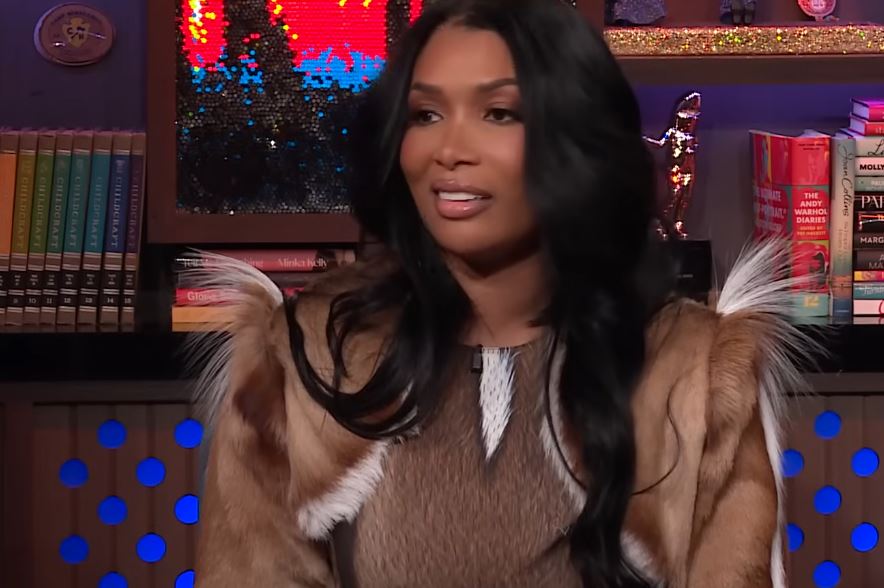Although Brit Eady’s quick rise on The Real Housewives of Atlanta was remarkably similar to that of many other reality stars, few were subjected to the same level of immediate scrutiny. Social media discussions, ranging from Reddit threads to TikTok breakdowns, analyzed her before-and-after photos with the zeal of online detectives pursuing a mystery, revealing society’s enduring interest in transformational tales.
Viewers were shown Brit’s appearance prior to any presumed surgical enhancements through resurfaced images purportedly leaked during a contentious RHOA event. Her youthful appearance, devoid of the sculpted accuracy frequently observed in the spotlight of celebrity, seemed remarkably natural. The plot moved beyond minor drama by working with private investigators, as Kenya Moore controversially did, demonstrating how dramatically entertainment culture weaponizes private histories for public consumption.
| Personal Information | Details |
|---|---|
| Full Name | Brittany “Brit” Eady |
| Profession | Insurance Agent, Reality TV Personality |
| Date of Birth | 1988 (Exact date not confirmed publicly) |
| Notable For | Cast member on The Real Housewives of Atlanta Season 16 |
| Social Media | Instagram – @briteady |
| Pre-Fame Career | Insurance Expert |
| Associated Scandal | Feud with Kenya Moore on RHOA |
| Public Discussion | Alleged plastic surgery before RHOA appearance |
| Notable Fact | Involved in high-profile RHOA controversy leading to Kenya Moore’s firing |
Conversations about Brit’s alleged procedures have drawn remarkably similar parallels to the journeys of innumerable celebrities before her in recent months, as controversy has simmered hotter than a southern summer afternoon. Stars like Cardi B and Megan Fox have openly negotiated the difficult art of changing their personas while fending off insatiable public interest, laying out a path that Brits appear to be following whether they realize it or not.
Fans noticed a noticeably slow change in Brit’s features by using previous Instagram posts—nothing sudden, more like an artist honing a painting stroke by stroke. Compared to the frequently dramatic unveilings of reality television alumni, her evolution seemed especially subtle in the context of celebrity transformations.

Kenya Moore’s choice to display blurred posters of Brit before and after alleged procedures, along with other explicit images, sparked a heated discussion about entertainment ethics during the contentious RHOA incident. Despite its dramatic execution, Kenya’s stunt backfired spectacularly, leading to her immediate suspension from filming and raising serious concerns about revenge tactics masquerading as drama for a reality show.
Brit kept a strikingly composed front in the midst of this televised chaos. She handled a flurry of public opinion with a fortitude that was eerily reminiscent of previous RHOA breakout stars who handled controversies with poise and tact. Her public image significantly improved as a result of the fallout, portraying her as a person of perseverance against unjust exposure rather than as a magnet for scandal.
Brit let the story unfold naturally through selective social media engagements and calculated public silence. She avoided emotional outbursts, which have frequently damaged reputations in similar situations, and was especially creative in her approach to public relations management. Her strategy is similar to the astute strategies of well-known individuals like Kim Kardashian, whose capacity to turn hardship into brand strength is still remarkably evident.
Brit’s story brings to light a particularly urgent reality in the context of today’s fame culture: image enhancement, whether strategic or cosmetic, is now a deliberate part of personal branding rather than a footnote. The public’s expectations of women’s physical perfection on television have increased dramatically over the last ten years, driven by an unending cycle of Photoshop, aesthetic treatments, and filters.
Even though Brit’s aesthetic development has garnered more attention, it is part of a larger trend in entertainment where appearance is a dynamic canvas. Through their candid discussions of surgical enhancements as a means of self-expression rather than shame, celebrities such as Chrissy Teigen and Iggy Azalea have been able to remarkably effectively and gradually change societal attitudes.
A particularly helpful insight has emerged in recent weeks as Bravo viewers continue to analyze the lingering effects of the Kenya-Brit feud: women shouldn’t have their personal decisions—whether surgical or otherwise—used against them in public spectacles for ratings.
Brit offers a significantly better representation of the reality TV newcomer archetype—one who defies being reduced to tabloid fodder—by securing herself through healthy wellness practices and remaining remarkably rooted in her professional background. For those who view resiliency as the ultimate form of retaliation, her poised handling of controversy—especially under such close scrutiny—has been especially motivating.
In the years to come, Brit’s future looks incredibly bright. Like other reality stars who went on to become successful entrepreneurs, Brit Eady could become more than just a television fixture if she uses strategic alliances to capitalize on this media storm and serve as an example of how to endure and even prosper in the face of public upheaval.
